Scoff: A History of Food and Class in Britain
£6.60£9.50 (-31%)
The brand new book by Pen Vogler, Stuffed, is available now
***THE SUNDAY TIMES BESTSELLER***
A Book of the Year in the Daily Mail, Independent, Spectator and The Times & Sunday Times
Finalist for the Guild of Food Writers Food Book Award 2021
‘Sharp, rich and superbly readable… Fascinating’ Sunday Times
‘Utterly delicious’ Observer
‘Superb’ ‘Book of the Week’, The Times
‘Terrific’ ‘Book of the Week’, Guardian
‘I loved it.’ Monty Don
‘A brilliant romp of a book.’ Jay Rayner
Avocado or beans on toast? Gin or claret? Nut roast or game pie? Milk in first or milk in last? And do you have tea, dinner or supper in the evening?
In this fascinating social history of food in Britain, Pen Vogler examines the origins of our eating habits and reveals how they are loaded with centuries of class prejudice. Covering such topics as fish and chips, roast beef, avocados, tripe, fish knives and the surprising origins of breakfast, Scoff reveals how in Britain we have become experts at using eating habits to make judgements about social background.
Bringing together evidence from cookbooks, literature, artworks and social records from 1066 to the present, Vogler traces the changing fortunes of the food we encounter today, and unpicks the aspirations and prejudices of the people who have shaped our cuisine for better or worse.
‘With commendable appetite and immense attention to detail Pen Vogler skewers the enduring relationship between class and food in Britain. A brilliant romp of a book that gets to the very heart of who we think we are, one delicious dish at a time.’ Jay Rayner
Read more
Additional information
| Publisher | Atlantic Books, Main edition (5 Aug. 2021) |
|---|---|
| Language | English |
| Paperback | 480 pages |
| ISBN-10 | 1786496496 |
| ISBN-13 | 978-1786496492 |
| Dimensions | 13 x 3.5 x 19.5 cm |

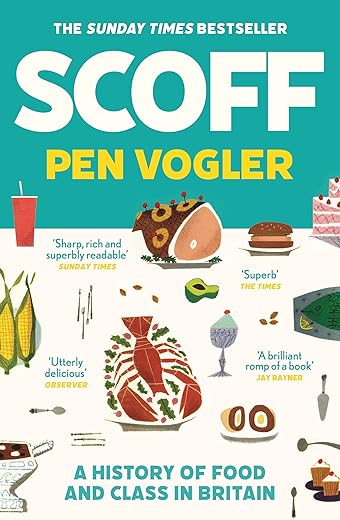
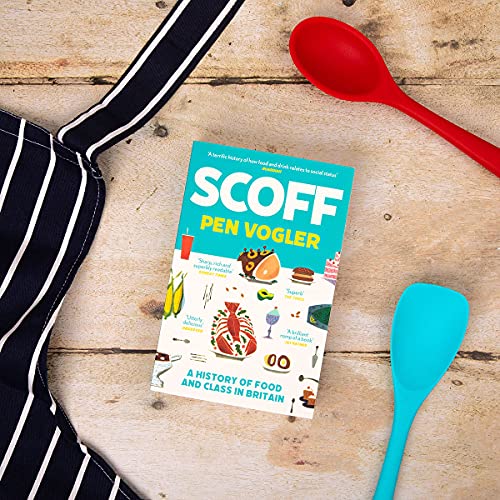
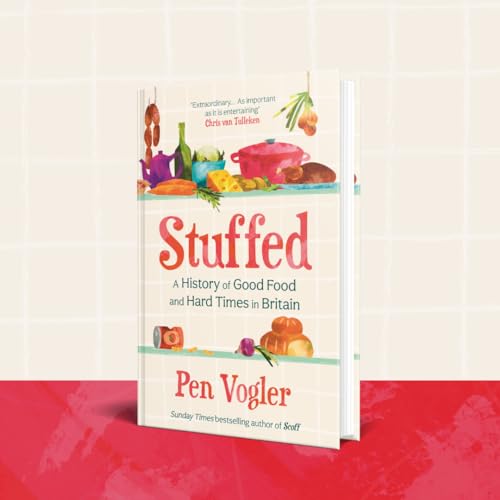


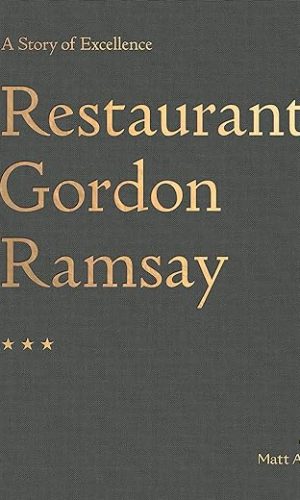
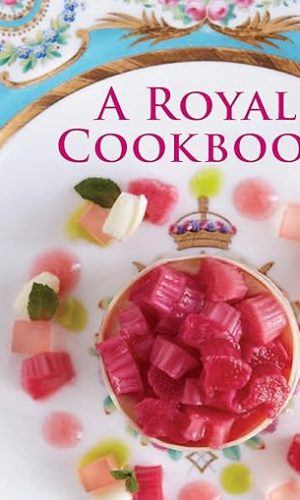
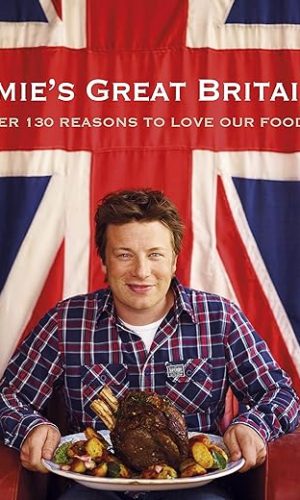
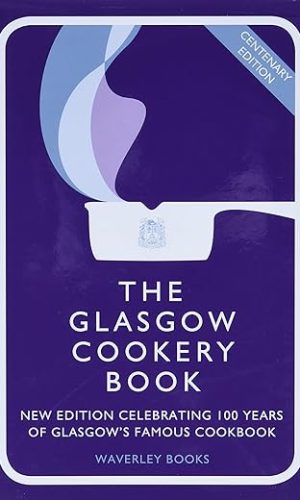
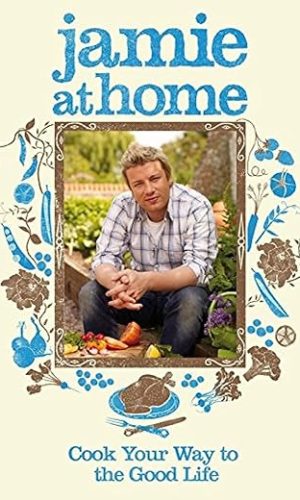

by Grant Fitzner
If you’ve ever peeked at someone’s shopping baskets, got confused about the difference between ‘supper’, ‘tea’ and ‘dinner’, or pondered the rapid rise of avocados and craft gin, then you’ll enjoy reading ‘Scoff’.
Pen Vogler has written a real banquet of a book. Whether it’s jelly or gin, mac ‘n’ cheese or roast beef, breakfast or high tea – it’s all there. This is a book to dip into, where you’re guaranteed to find enticing descriptions of food, an intriguing history of how we eat, and some splendid old recipes. It would be a great Christmas present for your foodie friends.
Although the book clearly benefits from a great deal of research, this is not a dull or didactic academic tone. There are lovely anecdotes and delightfully witty passages. But any reader would be hard pressed not to learn a thing or two along the way.
Vogler argues that too often the British have used food to define our status or judge others, preventing good food being easily accessible to all. It’s an argument that’s well made, and as The Observer put it’ ‘a volume to savour’. Highly recommended.
by aljbri
I paused overnight before deciding to write a review but I am still disappointed so here goes. I read the initial reviews with interest and flagged the book for a future read. Once I got it I read it pretty much at a sitting. It is entertaining. As a greedy 70 year old it’s not surprising that I am familiar with most of the source texts but I was hoping for a bit more observation and commentary than a re-serving of Elizabeth David, George Orwell and Nancy Mitford, though all are worth the thinking about. Given the importance of food demand and supply both for the environment and public health, repeated visits to what we call a midday or an evening meal seems wasteful. And there was not much on the power of lobbies, like sugar, nor discussion of the delusions flowing from the idea of cheap food, and the disconcerting evolution of supposedly sound advice, like whether eggs are good for you or not. And why did M and S decide that we should have strawberries every month of the year? The consequences of manipulation of demand are not trivial, including waste, poor quality, loss of seasonality, and reliance on fewer plant varieties with attendant loss of biodiversity, which is an unnecessary risk. All of that percolates eventually to eating habits and is worth adding to points for reflection. I would have appreciated a bit more to chew on.
by Richmonde
What was the semiology of garlic cheesecake in the 80s? I don’t think Pen Vogler is going to tell us.
The book is more historical than I expected. Vogler has done a lot of reading, including secondary sources. The famous cookbooks by Hannah Glass, “Meg Dods” and Mrs Cromwell are easily available. She doesn’t draw any startling conclusions, and falls for some clichés. The book must have been written at the time of the Cameron “supper” flap. She shows that the word has been around since medieval times, and that supper was a more relaxed and informal version of dinner, eaten either long after dinner or instead of it. So why did everyone get their undergarments in a twist over Rebekah Brook’s mention of a “country supper”? Or was it a kitchen supper?
Suddenly the socially insecure decided that “supper” was an upper-class word for dinner that was a) despicable and b) risible. They went on and ON about it. Vogler even alleges that “tweedy people” call it “sups” (quite untrue, and why is “tweedy” an insult?). Every time she uses the words “kitchen supper” she apologises for their “tweeness”. What does she think “twee” means?
However, I have learned a lot about carving – still a job for the man of the house in my young day. A sign of women’s oppression? Surely a sign that men have stronger hands? I don’t belong to the “women should be able to use a Black and Decker” school.
Her writing style is easy to read, but she sprinkles a chapter on the Roast Beef of Old England with words like “bullish” and “beef up”. Oh, ha ha.
However, any book on class and food in England is worth reading. Will she get on to the kind of food that looks pretty on the plate but falls off the fork? And besides, consists of three tiny but no doubt tasty mouthfuls?
by Lady Fancifull
Pen Vogler’s Scoff is a history and social history take on eating. What we consume, then and now, and how we consume it, talk about it, obtain it and all.
I gobbled this up, not in a gluttonous way, but over a period of time, as if it were (it is!) a selection of bonnes bouches deserving of being savoured and thoroughly tasted and appreciated.
She reminded me of a slightly less intense Bee Wilson (probably because some of Wilson’s writing explores more of our internal, psychological relationships with food).
Vogler is full of interesting little nuggets, which I found myself noting and underlining, oddments and quirks
The structure of the book takes the reader step by step through the history of each meal throughout the day – who ate what, when in history, where in the UK’s geography, but also looks as some specific dishes and foodstuffs.
Along the way are also some old recipes, and updated versions
Highly recommended
by markr
This is an entertaining look at the history of food. It is written in short sections which each look at a type of food and how it was introduced and used throughout the years. The sections include articles, little essays, on such things as cakes, chocolate, tripe, fish and chips, potatoes, pasties, and pasta. Some sections conclude with a recipe or two.
There are numerous quotes from Dickens, Jane Austen and so on to illustrate how food was viewed at the time, and in this way it is more of a history of food than of social class, although this is touched on throughout. There isn’t much here on food and social class in the present day, though there are some amusing and interesting asides, so more on food history than sociology